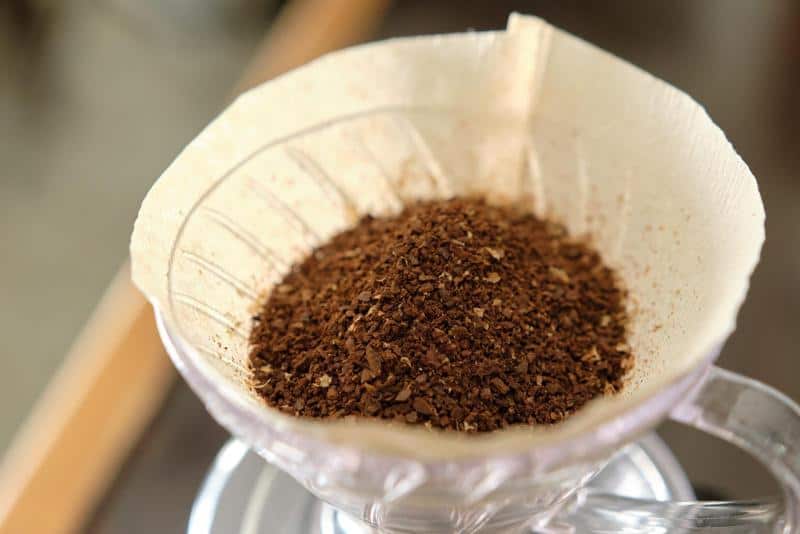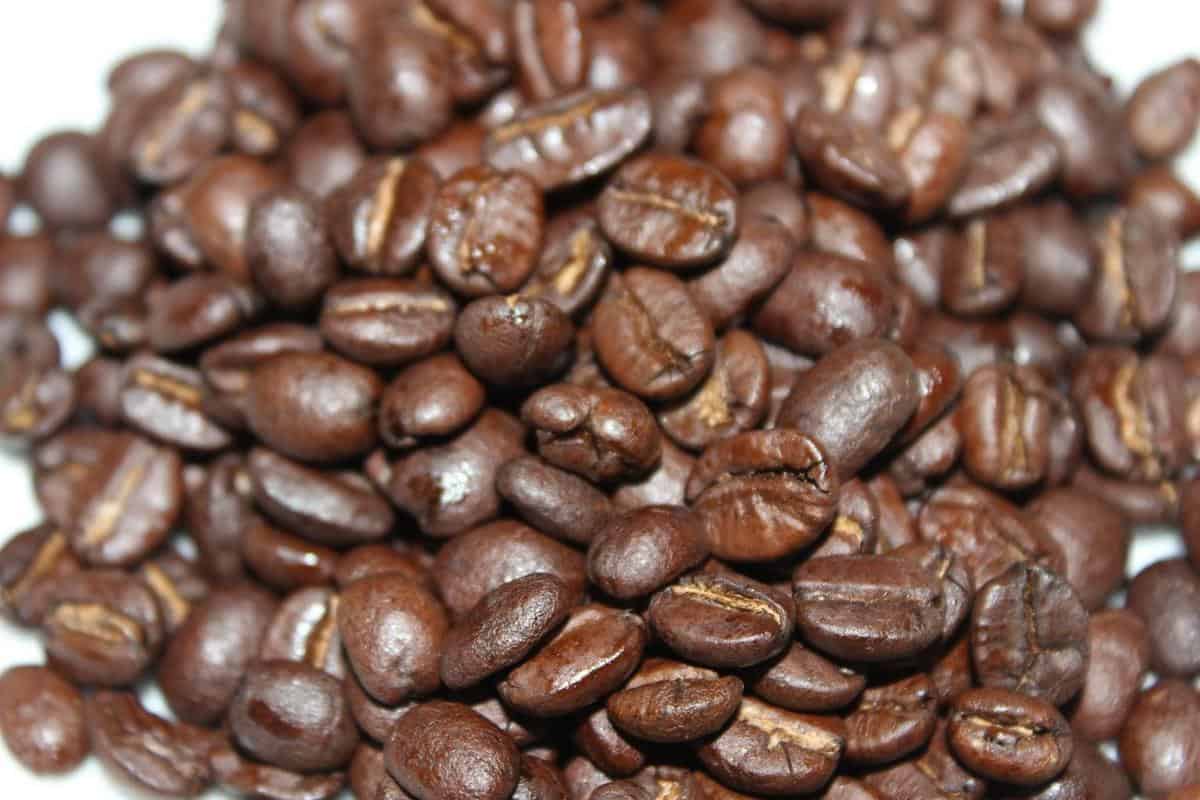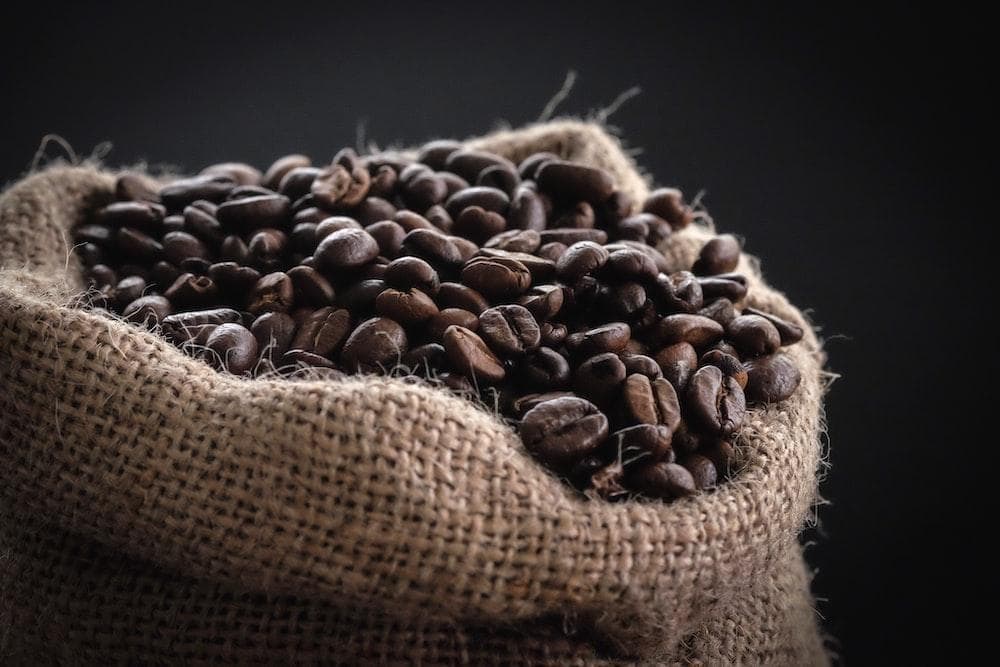Have you ever wondered how to give your roses a secret power boost to enhance their blooms? Look no further than coffee grounds. Yes, you heard it right – coffee for roses can work wonders. In this article, we will explore the fascinating world of using coffee grounds as a nutritional supplement for plants, specifically focusing on its benefits for roses.
Roses are often regarded as the queen of flowers, symbolizing beauty and elegance. However, achieving vibrant and healthy blooms can sometimes be a challenging task. This is where coffee for roses comes into play. Coffee grounds contain essential nutrients that can provide a much-needed boost for your rose plants, helping them thrive and produce breathtakingly beautiful blossoms.
While it may sound surprising, there is indeed science behind the effectiveness of coffee for roses. Coffee grounds are rich in nitrogen, potassium, phosphorus, and other minerals that act as natural fertilizers. These nutrients contribute to improved soil fertility, enhancing the overall health of your rose plants. Moreover, coffee contains organic matter that encourages beneficial microorganisms in the soil, aiding in nutrient absorption by the plant roots.
Next time you enjoy your morning cup of joe, don’t discard those used coffee grounds just yet – they hold immense potential to transform your rose garden into a blooming paradise. In the following sections of this article, we will delve deeper into the science behind coffee for roses and explore various methods of application to ensure optimal results.
We will also address common concerns and offer expert tips and tricks to unlock the maximum blooming potential of your precious roses. So stay tuned and get ready for a Green Revolution in gardening with Coffee for Roses.
Science Behind Coffee for Roses
Coffee grounds have long been hailed as a secret power boost for roses, and the science behind their nutritional benefits for plants is what makes them so effective. Roses are heavy feeders, requiring a nutrient-rich soil to thrive and produce vibrant blooms. Coffee grounds provide an array of essential nutrients that roses need to flourish.
One of the key components of coffee grounds is nitrogen, which is crucial for plant growth and development. Nitrogen promotes lush foliage and vibrant green leaves in roses. Additionally, coffee grounds also contain other important nutrients such as phosphorus and potassium, which are essential for flower production and root development.
In addition to providing essential nutrients, coffee grounds also improve soil structure and drainage. They act as a natural mulch that helps retain moisture in the soil while preventing weed growth. The organic matter in coffee grounds improves soil fertility by adding necessary microorganisms that break down organic material into rich humus.
To explore the nutritional benefits of coffee grounds on roses further, several studies have been conducted. A study published in the Journal of Applied Horticulture found that roses treated with coffee grounds showed increased growth rates, larger flowers, and improved resistance to diseases compared to those without coffee ground application. Another study conducted by Oregon State University concluded that the use of coffee grounds as a soil amendment increased nutrient availability and enhanced plant growth overall.
Overall, the science behind using coffee grounds for rose cultivation is well-supported by research findings. With their high nitrogen content and beneficial organic matter, coffee grounds provide an excellent source of nutrition for roses, promoting healthy foliage and abundant blooms.
| Nutrient | Content in Coffee Grounds |
|---|---|
| Nitrogen | 2-3% |
| Phosphorus | 0.1-0.3% |
| Potassium | 0.2-0.4% |
Understanding the Correct Usage
Roses are known for their beauty and fragrance, and many gardeners strive to enhance the growth and blooming potential of their rose bushes. Coffee grounds have been hailed as a secret power boost for blooms, thanks to their nutritional benefits for plants. In this section, we will explore the correct usage of coffee grounds on roses and discuss the best methods for application.
When it comes to using coffee grounds on roses, it is important to understand that they are rich in nitrogen, phosphorus, and potassium – three essential nutrients that contribute to healthy plant growth. Nitrogen promotes leafy growth, phosphorus supports strong root development, and potassium aids in overall plant health.
To apply coffee grounds on roses effectively, begin by collecting fresh coffee grounds from your daily brew. It is important to note that used coffee grounds contain less caffeine than freshly brewed ones since most of the caffeine gets extracted during the brewing process.
One popular method of using coffee grounds on roses is by directly applying them around the base of the plant. However, it is crucial not to pile them up against the stem as this can lead to rotting and pest problems.
Instead, spread a thin layer (about half an inch) around the base of each rose bush and gently work them into the soil with a rake or hoe. This ensures that the nutrients gradually leach into the soil without overwhelming the roots.
Another effective way to use coffee grounds on roses is through composting. Combine equal parts of green organic matter (such as grass clippings or kitchen scraps) with coffee grounds in a compost bin or pile. The carbon-nitrogen balance provided by adding coffee grounds helps accelerate decomposition and produces a nutrient-rich compost that can be applied as a top dressing around roses.
| Method | Description |
|---|---|
| Direct Application | Spread a thin layer of coffee grounds around the base of each rose bush and work them into the soil. |
| Composting | Mix equal parts of coffee grounds with green organic matter in a compost bin or pile to produce nutrient-rich compost. |
Coffee for Roses vs. Traditional Fertilizers
The Pros of Using Coffee for Roses
Using coffee grounds as a fertilizer for roses offers several advantages over traditional fertilizers. One of the main benefits is that coffee grounds contain essential nutrients that roses need to thrive. For example, coffee grounds are rich in nitrogen, which is essential for promoting healthy leaf and stem growth. Additionally, coffee grounds also contain other crucial nutrients like potassium and phosphorus, which contribute to root development and flower production.
Another advantage of using coffee grounds is the organic matter they provide to the soil. Coffee grounds act as a natural compost, improving soil structure and nutrient content. The organic matter in coffee grounds helps retain moisture in the soil, reducing the need for frequent watering. Not only does this benefit the roses by providing consistent hydration, but it also saves water in the long run.
The Cons of Using Coffee for Roses
While there are numerous benefits to using coffee grounds as a fertilizer for roses, there are also some potential drawbacks to consider. Firstly, it’s crucial to note that coffee grounds are acidic in nature. While this can be beneficial for acid-loving plants like roses, excessive acidity can lead to imbalances in pH levels. It’s important to monitor the pH levels of your soil regularly when using coffee grounds and make adjustments if necessary.
Another downside of using coffee grounds is their potential to attract pests and insects. Coffee grounds can create an ideal environment for certain pests when used excessively or incorrectly. To mitigate this risk, it’s essential not to apply too much coffee at once and properly incorporate it into the soil.
Lastly, while using coffee grounds can improve soil fertility over time, it may take a longer period compared to synthetic fertilizers that deliver rapid results. Patience and consistency are key when relying on coffee grounds as a primary fertilizer source for roses.
Unveiling Success Stories
Coffee for Roses has gained popularity among avid gardeners and horticulturists as a secret power boost for blooms. Many individuals have reported significant success in using coffee grounds on their rose plants, resulting in healthier and more vibrant blooms. In this section, we will explore some real success stories of gardens that have thrived with the use of Coffee for Roses.
One garden that stands out is the Smith family’s backyard oasis. With a profusion of beautiful rose varieties, the Smiths credit their flourishing blooms to the regular application of coffee grounds. They have observed that their roses appear to be more disease-resistant and less prone to pests after incorporating coffee into their gardening routine. Furthermore, they have noticed an increase in the number of flower buds and a more intense fragrance in their roses.
Another success story comes from a community garden in Greenfield. The passionate team of volunteers started using coffee grounds as a natural fertilizer alternative to traditional chemical-based options. In just a few weeks, they discovered remarkable improvements in the health and vitality of their rose bushes.
Not only did the roses produce larger flowers, but they also exhibited richer colors and stronger stems. The gardeners believe that coffee for roses has significantly enhanced their overall gardening experience while maintaining ecological balance.
To achieve similar success with Coffee for Roses, it is essential to follow the correct methods of application. Here are some tips shared by successful gardeners:
- Spread a thin layer of coffee grounds around the base of each rose bush, avoiding excessive accumulation.
- Mix coffee grounds with compost before applying them to ensure balanced nutrition for plants.
- Water thoroughly after applying coffee grounds to aid absorption and prevent any potential drying effects on soil.
By understanding these success stories and following expert-recommended application techniques, you too can experience the transformative power of Coffee for Roses in your own garden.
Troubleshooting Common Issues
Roses are beautiful and delicate flowers that require proper care and attention to thrive. While using coffee grounds as a fertilizer can provide numerous benefits for roses, there are some common issues that gardeners may encounter. This section will discuss how to troubleshoot these problems and avoid pitfalls while using coffee for roses.
- Overfertilization: One of the main issues that can arise when using coffee grounds on roses is overfertilization. Coffee grounds contain nitrogen, which is essential for plant growth. However, applying too much nitrogen can lead to excessive leaf growth at the expense of flower production. To avoid this issue, it is important to use coffee grounds in moderation and ensure that they are well-composted before application.
- Acidification of soil: Coffee grounds are acidic in nature, which can be beneficial for acid-loving plants like roses. However, excessive use of coffee grounds can lead to an overly acidic soil pH, affecting nutrient availability and causing harm to the plants. To prevent this problem, it is recommended to test the soil pH regularly and adjust it if necessary by adding other organic materials like compost or lime.
- Pest attraction: Coffee grounds have been found to attract certain pests such as slugs and snails. These pests can cause significant damage to rose plants by feeding on the leaves and flowers. To deter them, it is advisable to create a barrier around the base of the rose bushes using materials like crushed eggshells or diatomaceous earth.
DIY Coffee-based Rose concoctions
Coffee Grounds Fertilizer
One of the simplest and most effective DIY coffee-based rose concoctions is a coffee grounds fertilizer. Coffee grounds are rich in nitrogen, phosphorus, and potassium, which are essential nutrients for plant growth. To make this fertilizer, save your used coffee grounds and mix them with an equal amount of organic compost.
Spread this mixture around the base of your rose plants, avoiding direct contact with the stems or leaves. Water the area thoroughly to allow the nutrients to penetrate the soil.
Coffee Infused Water
If you prefer a liquid fertilizer, you can infuse water with coffee to create a nutrient-rich solution for your roses. Start by brewing a pot of strong coffee using freshly ground beans. After allowing the brewed coffee to cool completely, dilute it with an equal amount of water. Use this mixture to water your roses regularly, ensuring that it reaches the root zone. Coffee-infused water not only provides essential nutrients but also helps improve soil structure and fertility.
Compost Tea with Coffee
Compost tea is known for its beneficial microorganisms that promote healthy plant growth. By adding coffee to your compost tea recipe, you can enhance its nutritional content even further. To make compost tea with coffee, fill a bucket with water and add well-aged compost or worm castings along with used coffee grounds or brewed coffee grounds (strained).
Allow this mixture to steep for 24-48 hours before straining out any solids. Use the resulting liquid as a foliar spray or soil drench around your roses.
Experimenting with these DIY coffee-based rose concoctions can be a fun way to provide extra nourishment and see optimal results in your blooming plants. However, it’s important to remember that moderation is key when using any homemade fertilizers or treatments on your garden.
It’s always a good idea to start with smaller amounts and observe how your roses respond before increasing the frequency or quantity of applications. Additionally, it is recommended to consult with local gardening experts or extension offices for specific guidelines tailored to your region’s soil conditions and climate.
Expert Tips and Tricks
When it comes to maximizing the blooming potential of roses with coffee, there are a few expert tips and tricks that can help you achieve the best results. Here are some recommendations to ensure your roses thrive using coffee as a boost for their growth and flowering.
Firstly, one important tip is to use fresh coffee grounds instead of old ones. Fresh coffee grounds have a higher nitrogen content, which is essential for promoting healthy foliage and imparts a stronger nutritional boost for roses. By using freshly brewed coffee grounds, you can provide the necessary nutrients in an easily absorbable form.
Another tip is to ensure that the coffee grounds are well-composted. This means allowing them to break down and decompose fully before applying them to your roses. Composting allows the nutrients in the coffee to become more readily available for absorption by the plants, resulting in better growth and blooming. It is also important to avoid applying large quantities of coffee grounds at once, as this can lead to excessive nitrogen levels in the soil.
Additionally, consider incorporating other organic materials along with coffee grounds when enriching your rose garden’s soil. Mixing composted manure or leaf mold with coffee grounds creates a well-balanced blend that provides a wide range of nutrients essential for overall plant health. This combination not only ensures optimal blooming but also enhances soil structure and fertility over time.
By following these expert tips and tricks, you can maximize the blooming potential of your roses with coffee. Remember to use fresh, well-composted coffee grounds and consider blending them with other organic materials for optimal results. With proper care and attention, you’ll soon see your roses flourishing like never before thanks to their secret power boost from coffee.
The Green Revolution
In conclusion, coffee for roses is not only a secret power boost for blooms, but it also offers a green revolution in environmentally friendly gardening. By utilizing the nutritional benefits of coffee grounds, gardeners can nourish their roses while reducing waste and promoting sustainability.
The science behind coffee for roses is rooted in the nutritional composition of coffee grounds. Rich in nitrogen, potassium, and other essential minerals, coffee grounds provide the necessary nutrients for healthy growth and vibrant blooms. Furthermore, using coffee grounds as a fertilizer reduces the need for synthetic fertilizers that can harm the environment and water sources.
When using coffee for roses, it is crucial to understand the correct usage methods. The best way to apply coffee grounds is by mixing them into the soil or creating a compost mixture. This ensures that the nutrients are evenly distributed and absorbed by the plants. Additionally, gardeners should avoid excessive use of coffee grounds as it can lead to an imbalance in pH levels.
Compared to traditional fertilizers, coffee for roses has both pros and cons. While traditional fertilizers may offer quick results, they usually contain harmful chemicals that can have long-term negative effects on soil health. Coffee grounds, on the other hand, enrich the soil with organic matter and improve its texture over time. However, it’s important to note that every garden is unique and experimentation may be needed to find what works best.
Frequently Asked Questions
Is coffee good for roses?
Coffee can be beneficial for roses when used in moderation. It contains nitrogen, which is essential for plant growth and can help promote healthy foliage and blooms for roses.
Additionally, coffee grounds can serve as a natural mulch, helping retain moisture in the soil and preventing weed growth around roses. However, it’s important not to overdo it with coffee as too much caffeine or acidity can be harmful to plants.
Is diluted coffee good for roses?
Diluted coffee can also be beneficial for roses if used properly. By diluting coffee with water, you reduce its concentration of caffeine and acidity, making it safer for plants like roses.
When used as a foliar spray or poured onto the soil around rose bushes, diluted coffee can provide an organic source of nutrients and improve soil fertility. Just make sure that the coffee is well-diluted to avoid causing any harm to the plants.
How often can you use coffee grounds on roses?
Coffee grounds can be used on roses about once every two weeks during the growing season, but it’s crucial not to go overboard with their application. Roses benefit from coffee grounds when they are mixed into the soil around the base of the plants or added to compost piles.
The grounds slowly release nutrients into the soil as they break down, enhancing its quality over time. However, using excessive amounts of coffee grounds too frequently may lead to imbalances in soil pH or nutrient levels.
What plants don’t like coffee grounds?
While some plants thrive with the use of coffee grounds, others may dislike them due to their caffeine content or acidic nature. Plants that do not appreciate coffee grounds include those that prefer alkaline soils such as tomatoes, peppers, and potatoes.
Additionally, some fungal diseases like powdery mildew thrive in environments with high acidity levels and may worsen if exposed to excess coffee grounds.
What is best food for roses?
The best food for roses depends on their specific nutritional needs and preferences. Generally speaking, a balanced rose fertilizer that provides essential nutrients such as nitrogen (N), phosphorus (P), and potassium (K) is beneficial. A fertilizer with a ratio of around 10-10-10 or 14-14-14 can meet the basic requirements of roses.
However, it’s always important to consider the specific soil conditions and nutrient deficiencies in your garden before choosing a fertilizer. Consulting with a local gardening expert or using a soil test kit can help determine the most suitable food for your roses. Additionally, organic alternatives such as compost or well-aged manure can also provide valuable nutrients for these beautiful flowers.










